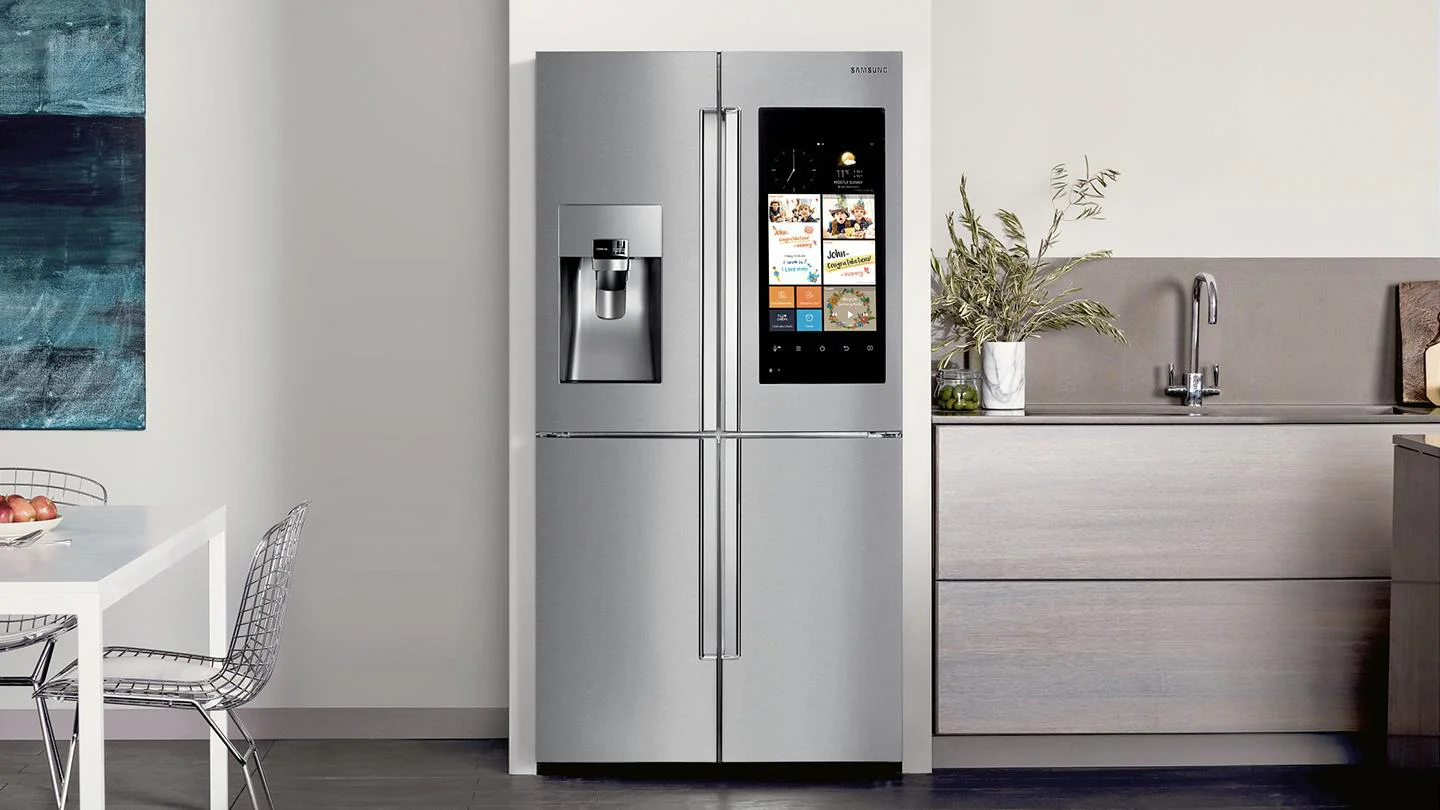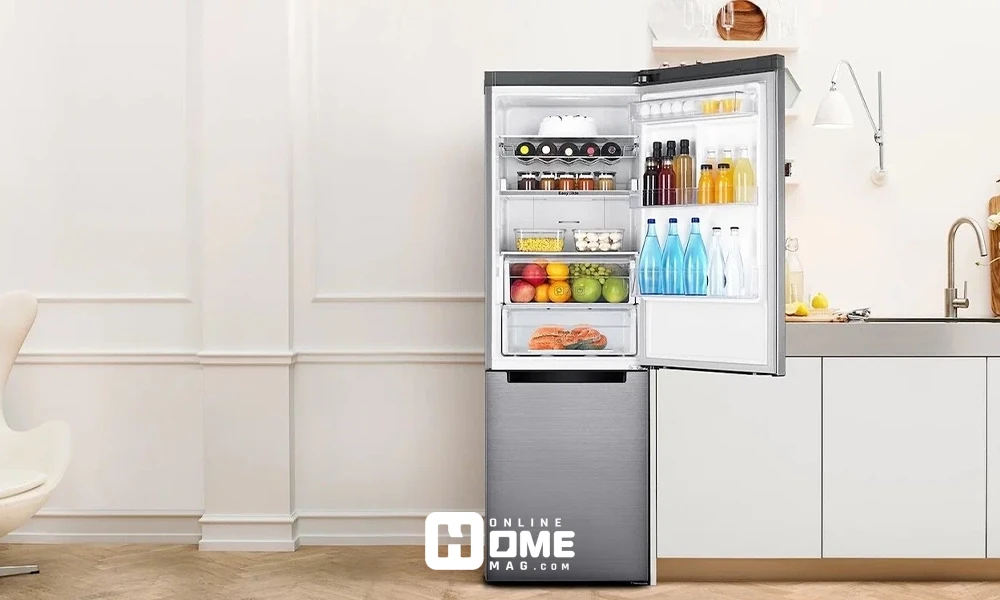🕓 Last updated: October 23, 2025
Understanding Your Needs: What Are You Looking for in a Refrigerator?
The first step in choosing the best refrigerator is to understand your specific needs. What’s most important to you: space, energy efficiency, style, or features? Identifying your priorities will guide your decision-making process.
- Size & Capacity: Think about how much food you typically store and how much space you need. If you have a larger family or entertain often, you may need a fridge with a larger capacity. On the other hand, if you’re in a smaller home or apartment, you may only need a compact model.
- Design & Features: Consider what kind of design suits your kitchen. Do you prefer a classic top freezer model, or are you looking for something more modern, like a French door refrigerator or side-by-side model? Additionally, think about the features you need, such as water dispensers, ice makers, or adjustable shelving.
Size, Space, and Layout: Finding the Right Fit
Choosing which refrigerator is best largely depends on how much space you have available. Refrigerators come in various sizes and configurations, so it’s important to measure your kitchen space before making a decision.
- Width, Height, and Depth: Make sure to measure the width, height, and depth of the area where your refrigerator will go. Some models, like counter-depth refrigerators, are designed to align with your kitchen cabinets, while others may stick out further.
- Consider the Layout: If you have a narrow kitchen, a side-by-side refrigerator might be a good choice, as it requires less door clearance. For larger kitchens, French door refrigerators or bottom-freezer models might be more ideal for easy access to fresh food.
Energy Efficiency: Saving Money in the Long Run
When choosing the best refrigerator, energy efficiency is one of the most important factors to consider. A refrigerator is one of the most energy-consuming appliances in your home, so opting for an energy-efficient model can save you money over time.
- Energy Star Certification: Look for refrigerators that have the Energy Star label, which indicates they meet certain energy-saving standards. Energy-efficient models consume less electricity, helping you reduce your environmental footprint and lower utility bills.
- Additional Features for Energy Savings: Many modern refrigerators come with features like LED lighting, frost-free technology, and smart cooling systems, all of which can further enhance energy efficiency.
Storage and Organization: Maximizing Your Space
When deciding which refrigerator is best for your home, you must also think about how the fridge will accommodate your food and kitchen items. A refrigerator with a smart layout and flexible storage options will make it easier to keep everything organized and easily accessible.
- Adjustable Shelves & Bins: Opt for a model with adjustable shelves and deep door bins, which allow you to customize the storage space according to your needs. For example, if you regularly store large items like trays or bottles, look for a fridge with a wide pantry drawer or spacious door compartments.
- Dedicated Zones: Some refrigerators come with temperature-controlled drawers or multiple zones that help store different foods at their optimal temperatures. This is especially useful for fruits, vegetables, or meat storage.
Advanced Features: What Do You Really Need?
Refrigerators today come packed with many advanced features, and depending on your needs, some might be more essential than others. While these features can be very convenient, it’s important to balance necessity with cost.
- Water & Ice Dispensers: Many refrigerators now come with built-in water dispensers and ice makers, which are perfect for households that drink a lot of water or use ice frequently.
- Smart Technology: If you’re looking for a high-tech fridge, some models now come with Wi-Fi connectivity, allowing you to control the fridge remotely via an app or voice commands. You can monitor temperature settings, track food inventory, or even set alerts for when your refrigerator door is left open.
- Noise Levels: Consider the noise level of your refrigerator, especially if it’s placed in a kitchen or living area where it might be more noticeable. Some refrigerators are designed to operate quietly, and this can be an important factor when deciding which refrigerator is best for your home.
Smart Features: Are They Worth It?
With the advent of technology, modern refrigerators now come with smart features that can enhance the user experience. These advanced features can be useful, but it’s important to consider whether they align with your needs.
- Wi-Fi Connectivity: Allows you to control the refrigerator remotely.
- Voice Control: Some refrigerators are compatible with virtual assistants like Alexa or Google Assistant.
- Smart Inventory Tracking: Certain models track the items inside, helping you know when you’re running low on groceries.
- Touchscreen Interfaces: Some high-end models feature built-in touchscreens for easy access to apps, calendars, and recipe ideas.
- Camera: Some refrigerators have internal cameras, so you can view what’s inside from your smartphone.
Conclusion: Smart features can add convenience, but they come at a higher price. Consider whether these features will genuinely benefit your household before making a decision on which refrigerator is best.
Maintenance and Longevity: How to Extend the Life of Your Refrigerator
Refrigerators are long-term investments, and with proper maintenance, you can extend their lifespan and keep them running efficiently for years.
- Regular Cleaning: Clean the coils, condenser, and interior of your fridge to ensure it operates smoothly. Knowing how to clean a refrigerator properly can significantly improve its performance and lifespan.
- Check Door Seals: Make sure the door seals are tight to prevent energy loss.
- Leveling the Fridge: Ensure the refrigerator is level to maintain proper airflow and efficiency.
- Filter Replacement: Replace water filters regularly to maintain clean water and ice.
- Avoid Overloading: Overloading your fridge can reduce airflow and efficiency.
Conclusion: Regular maintenance can help your fridge last longer and operate at peak efficiency, ensuring you get the most out of your investment when choosing which refrigerator is best for your home.
Budget Considerations: What’s the Right Price for You?
Price is, of course, an important factor in determining which refrigerator is best. While it can be tempting to opt for a budget-friendly option, remember that the refrigerator is a long-term investment, and sometimes paying more upfront can save you money over the long haul.
- Upfront vs. Long-Term Costs: While cheaper refrigerators may have a lower initial cost, they could be less energy-efficient or have fewer features. On the other hand, higher-end models may cost more initially but save you money through energy savings and better durability.
- Warranty & Support: Another factor to consider is the warranty and customer service provided by the manufacturer. A good warranty can offer peace of mind and save you from unexpected repair costs.
Conclusion: Finding the Best Refrigerator for Your Home
Choosing which refrigerator is best requires considering several factors, including size, energy efficiency, storage capacity, and advanced features. Take the time to assess your kitchen’s layout, your household’s needs, and your budget before making a final decision.
By focusing on what’s important to you, from the design to the features and functionality, you can ensure that your refrigerator fits perfectly into your life—and your kitchen.



